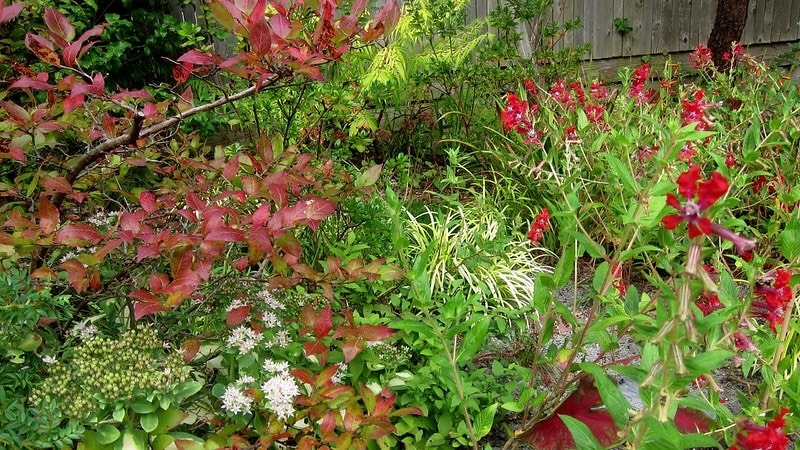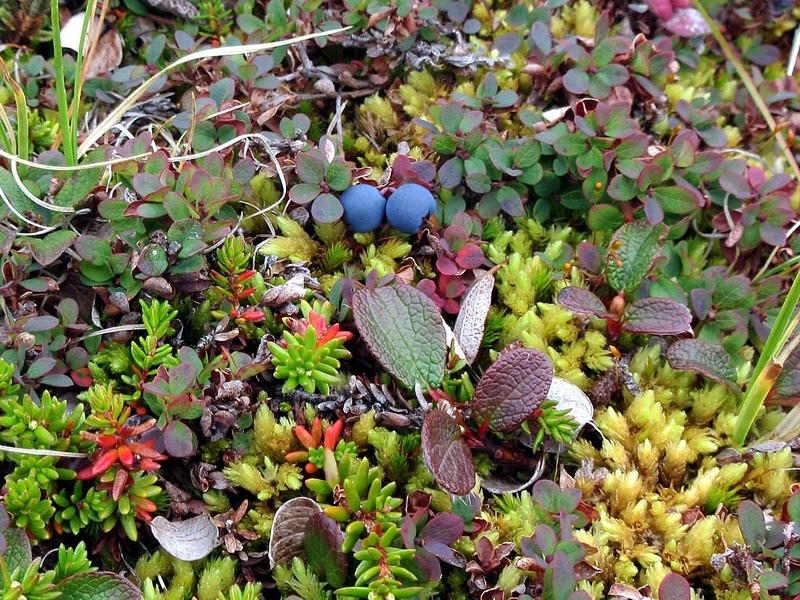Blueberry bushes have become one of the most popular fruit plants to grow in the home garden thanks to the introduction of improved varieties. High bush and low bush varieties are perfect for growing in large kitchen gardens, small patio containers, or a mixed shrub border. Blueberry bushes are among the lowest-maintenance food crops and give a large payback in fruit that is delicious eaten fresh, cooked, or frozen.

Photo by K M, unmodified, Flickr, copyright CC BY 2.0 DEED
The two most important growing conditions for blueberries are soil acidity and drainage. Blueberries prefer a pH level between 4.0 - 5.0. Higher pH soils can be acidified with aluminum sulfate, although a pH higher than 7.0 may be too difficult to lower to a stable level. Fertilizers for acid-loving plants typically help maintain a certain pH level and do not lower it. Blueberries also need well-draining soil that stays evenly moist in order to develop the best fruit. Mulching with organic material such as compost will enrich the garden soil and lock in moisture.
Shrubs To Plant With Blueberry Bushes
Acid-loving shrubs like rhododendron, barberry, daphne, and yew make a great backdrop for a blueberry patch. Plant the blueberries so that they are not shaded by larger growing shrubs. Heather and miniature pines can be planted amongst a blueberry patch in smaller gardens to conserve space and add an ornamental touch to the border. Other blueberries with a similar bloom time also make excellent companions to ensure high cross-pollination and fruit production.

Perennials To Plant With Blueberry Bushes
To attract more beneficial pollinators to your blueberry patch, add long-blooming perennials, such as sedum, bleeding hearts, bee balm, lupine, and liriope. These power perennials all grow well in acidic soil and enjoy the same sun exposure and moisture levels that blueberries do. Plant them as a dense ground cover to act as living mulch or incorporate them into a blueberry bed as part of a mixed shrub and perennial border. Blueberries fruit in early to late summer, depending on the type, so make sure the bloom periods overlap for the best pollination rate.
Spring-blooming bulbs generally tolerate acidic soils well and can be included to take advantage of the higher sun exposure before the blueberries leaf out in late spring. Strictly ornamental plants, like hosta, ferns, and sweet woodruff, can also be planted to take advantage of their interesting foliage shape and color. Plant the ornamentals near blueberries in a naturalistic or woodland design.

Annuals To Plant With Blueberry Bushes
Blueberry bushes have a shallow root system that does not like to be disturbed by planting and removing annual plants every season. Seed-sown annuals grown to entice pollinators are much less likely to upset the root systems. Some great choices include calendula, nasturtium, sweet alyssum, and rose campion, which can be directly sown once all risk of frost has passed. Lettuces and spinach can be planted under the bushes to give them much needed shade during the hottest portion of the summer.
Best Companion Plants For Blueberry Bushes in Containers
Because blueberries have shallow roots that do not like to be disturbed, they are best planted alone in a container. Ensure that the pot you use has excellent drainage holes and fill it with a peat-free potting mix with added perlite or vermiculite. Perlite and vermiculite help the soil hold moisture longer while also improving drainage.
Plants Not To Grow With Blueberry Bushes
Plants that prefer an alkaline pH are not great choices to grow alongside blueberries. Some nightshade family members, including tomatoes, pepper, eggplant, and potatoes, do not grow well at a pH level below 6. All brassica plants (cabbage, broccoli, cauliflower, brussel sprouts, arugula) need a neutral to alkaline pH for proper growth. When planted in acidic soil, cruciferous plants can contract a fungal disease called clubroot, which severely stunts growth and eventually causes plant death before harvesting is possible.
Best Plants To Grow With Blueberry Bushes
Choose plants that bloom at the same time as your blueberries to enhance pollination and increase crop production. Acid-loving shrubs like azalea, rhododendron, cranberry, and flowering dogwood can provide structure and interest to an edible shrub border. Add seed-sown annuals and shallow-rooted perennials as a living mulch to help retain moisture near the blueberries and suppress weeds during the growing season.
